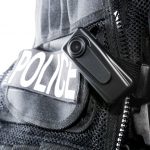Interview Ruled Inadmissible After Illegal Arrest

As the name suggests, the Law Enforcement (Powers and Responsibilities) Act 2002 (the LEPRA) sets out many of the rules which apply to police when exercising their powers.
Section 99 of the Act lists the circumstances in which police are permitted to arrest a person without a warrant.
In short, an officer can arrest a person he or she suspects on reasonable grounds is committing, or has committed, an offence if satisfied that an arrest is reasonably necessary for any of the following reasons:
- To ensure the appearance of the person before a court,
- To prevent a continuation of the offence or the commission of another offence,
- To prevent interference with evidence,
- To prevent the fabrication of evidence,
- To preserve safety or welfare of any person; not just witnesses and including the defendant,
- To stop the person fleeing,
- To obtain property in possession of the person in connection with the offence, or
- Because of the nature or seriousness of the offence.
Until recently, these situations were more limited, but the NSW Government succumbed to pressure from the Police Association and media to broaden arrest powers, leading to the section in its current form.
Safeguards against illegal conduct by police
To deter unlawful conduct by police and others, section 138 of the Evidence Act 1995 requires illegally or improperly obtained evidence to be excluded if the undesirability of admitting the evidence outweighs the desirability of admitting it.
In making that determination, the court is required to weigh up a range of (often competing) considerations, including:
- The importance and value of the evidence to the overall proceedings,
- The nature and seriousness of the alleged offence,
- The extent of the impropriety or illegality,
- The nature of the breach, including whether it was deliberate or reckless, and
- The ease or difficulty of obtaining the evidence without resorting to the impropriety or contravention.
A number of other sections of the LEPRA, Evidence Act, Criminal Procedure Act and other legislation seek to protect against police misconduct, and the admission of unreliable evidence.
For example, section 281 of the Criminal Procedure Act essentially says that a record of interview is not admissible in court unless a tape recording is available, except where police had a ‘reasonable excuse’ not to make such a record.
Among other things, the safeguards were introduced to protect against corrupt police practices such as ‘verballing’ – ie dishonestly attributing a damaging statement to a suspect – and unscrupulous methods of extracting unreliable information such as the use of promises, threats and undue pressure.
Indeed, the 1995-1997 Wood Royal Commission found that corruption and misconduct were “systematic and entrenched” within the NSW Police Service, with verballing considered to be an acceptable practice. As a result of the Commission, hoards of corrupt police officers were compelled to resign.
Despite reforms, police continue to regularly abuse their powers and break the rules and regulations they are supposed to abide by, especially when it comes to individuals they see as weak or vulnerable.
R v Powell
The case of R v Powell [2010] NSWDC 84 demonstrates the need to remain vigilant when it comes to police abusing their powers.
Facts of the case
The case involved 19-year-old Aboriginal man Steven Powell, who at 11.30pm on 13 April 2009 was arrested and taken into custody on suspicion of motor vehicle theft and break and enter offences.
Mr Powell received legal advice in the early hours of the next morning, and at 5.20am, advised police he did not wish to participate in an interview. That refusal was recorded by police on a handheld tape recorder.
Police suspected that others were involved in the alleged offences, and without further leads, obtained an order to take Mr Powell to an interview room within the correctional centre where he was held. They took Mr Powell to another part of the prison and interviewed him on 26 June 2009, some two-and-a-half months after his initial arrest.
The objection
Criminal defence lawyer Stephen Lawrence objected to the proposed tender of the interview transcript on the following grounds:
- The interview took place months after arrest and charge;
- It took place inside the correctional centre;
- It took place in circumstances where the accused declined to answer questions;
- The arrest for the purpose of an interview was unlawful;
- No effort had been made to contact the accused’s lawyers;
- Police failed to comply with the LEPRA provisions relating to Aboriginal persons;
- Insufficient regard was given to the accused’s status as a vulnerable person; and
- He was not afforded an opportunity to speak in private with the legal representative contacted by police.
The judgment
District Court Judge Judge Nicholson found that the act of taking Mr Powell into police custody at the correctional centre constituted an arrest, as evidenced by the execution of an order under section 25 of the Crimes (Administration of Sentence) Act 1999 and the fact he was cautioned during the execution of that order both orally and by way of a document titled ‘Caution and Summary of Part 9 of LEPRA’ – which summarises a person’s rights while under arrest.
As Mr Powell had previously been arrested and charged over the very same incident, police were required to establish why this ‘second arrest’ was lawful under the provisions of section 99 of the LEPRA.
His Honour found that the subsequent arrest was solely for the purpose of questioning, which is not a valid reason under section 99.
“There was nothing in s 99 providing a statutory authorisation for arresting a suspect for questioning. This was not some oversight by Parliament; it represented a deliberate curtailment of police powers”, the judge noted. The arrest was therefore illegal.
Applying the provisions of section 138 of the Evidence Act, His Honour found that:
“I am satisfied… [the police officer’s] actions in arresting him for that purpose were planned and deliberate.”
The gravity of the breach was therefore substantial, and the interview was excluded on that basis.
The case is a reminder that evidence can be excluded where police deliberately engage in illegal acts in an effort to obtain information.







